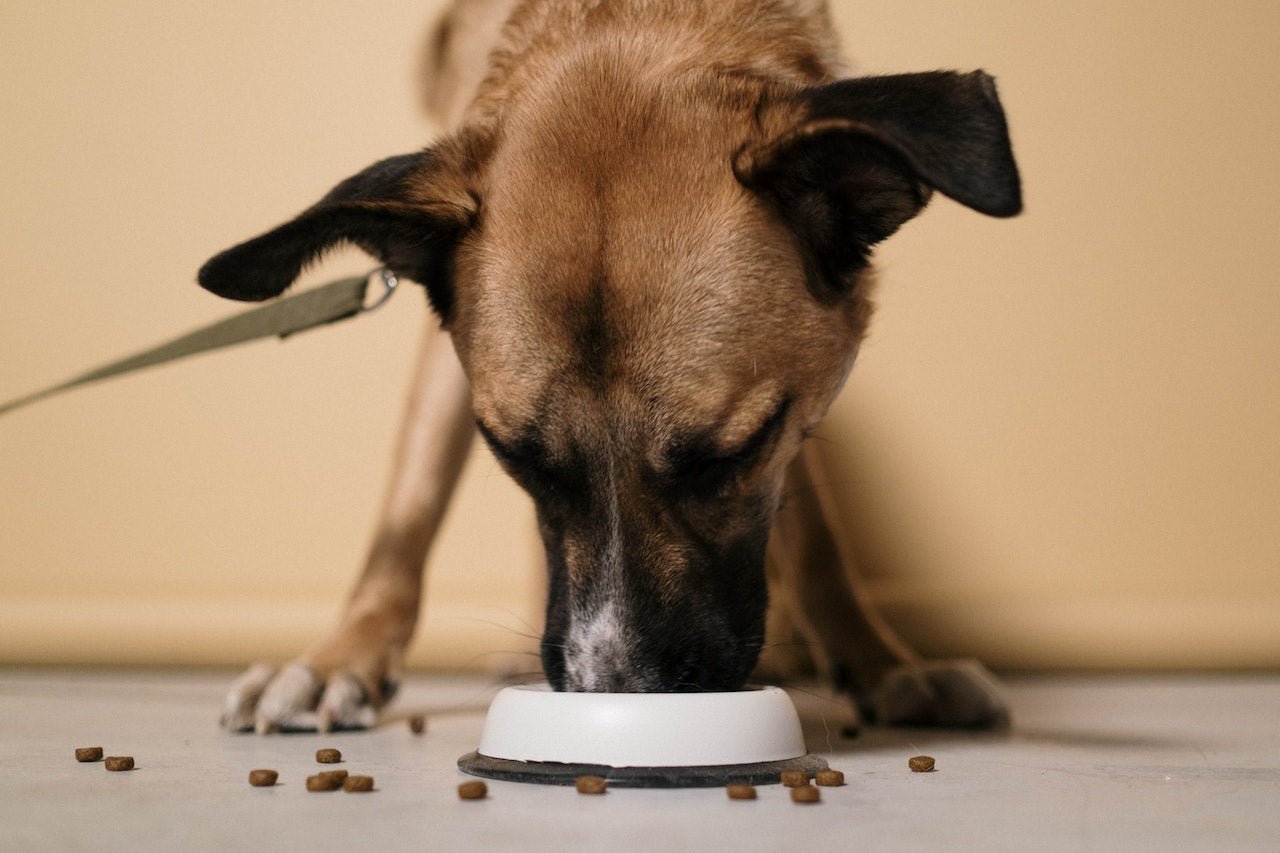Welcome to our blog post on how to make your dog sleep instantly overnight! As pet owners, we understand the significance of ensuring our dogs get a peaceful night's rest. Just like us, dogs require quality sleep for their overall health. Yet, many face challenges in falling asleep or staying asleep, leading to tired pups and weary owners.
In this post, we'll delve into why dogs might find it hard to sleep and offer techniques to make your dog fall asleep instantly. Whether you're curious about how to make your dog sleep with you or searching for sounds to make your dog fall asleep instantly, we've got insights for you.
First, let's understand their sleep patterns. Different breeds have distinct sleep requirements. By recognizing these, you can ensure your pet gets the right amount of rest. We'll also touch upon the stages of sleep and their impact on a their health.

Creating the ideal sleep environment is crucial. From selecting the perfect dog bed to understanding how to make your dog sleep at night by managing factors like temperature, lighting, and noise disturbances, we'll guide you through it all. Ever wondered about the buzz around how to make your dog fall asleep instantly on TikTok? We'll shed light on that too!
A consistent bedtime routine is the key to sound sleep. We'll emphasize the role of consistency, relaxation activities before bedtime, and how daytime exercise and mental stimulation lead to better sleep. If you've pondered how to make a dog sleep with medicine, we advise considering natural alternatives first.
For those keen on natural sleep aids, we've got recommendations. From aromatherapy and calming scents to sound therapy, white noise machines, and even herbal supplements, we'll discuss options that can help. If you've ever thought, "What can I give my dog to sleep at night?", this section is for you.
Love your pup every day the easy way with Dope Dog. Check out their full line of pet-safe CBD products today. Shop now!
In conclusion, we will recap the key points discussed and leave you with some final thoughts and encouragement for better sleep for your beloved dog.
Join us on this journey to uncover sleep secrets and help your dog drift off to dreamland instantly. Your furry friend will thank you, and you'll both enjoy the benefits of a well-rested and rejuvenated dog. Let's dive in!
Understanding Your Dog's Sleep Patterns
Sleep is a vital aspect of your dog's overall health and well-being. Just like humans, dogs go through different sleep patterns and stages that contribute to their physical and mental restoration. By understanding your dog's sleep patterns, you can better cater to their sleep needs and ensure they get the rest they require.
Sleep needs and duration for different dog breeds vary significantly. While some breeds may require more sleep, others may be content with shorter periods of rest. For example, larger breeds such as Great Danes or Mastiffs may need up to 16-18 hours of sleep per day, while smaller breeds like Chihuahuas or Jack Russell Terriers may only require around 10-12 hours.

It's important to note that age also plays a crucial role in determining a dog's sleep needs. Puppies and younger dogs tend to sleep more as they are growing and developing, while older dogs may experience changes in their sleep patterns due to age-related factors. Understanding your dog's breed and age-related sleep requirements will help you establish an appropriate sleep routine.
Dogs, just like humans, go through various stages of sleep. These stages include REM (Rapid Eye Movement) sleep and non-REM sleep. During REM sleep, which is comparable to the dreaming phase in humans, dogs may twitch, make noises, or exhibit random movements. Non-REM sleep is a deeper, more restorative phase where the body repairs and regenerates.
Related: MSM For Dogs
The quality of your dog's sleep is influenced by several factors. Environmental factors such as noise, lighting, and temperature can impact their ability to fall asleep and stay asleep throughout the night. Providing a comfortable and quiet sleep space, as we will discuss in detail later, can greatly enhance their sleep quality.
Additionally, your dog's physical condition and health can affect their sleep patterns. Dogs with underlying health issues or chronic pain may find it challenging to get restful sleep. It's crucial to address any potential health concerns with your veterinarian to ensure your dog's overall well-being.
By understanding your dog's sleep patterns, sleep needs, and the factors influencing their sleep quality, you are better equipped to create an environment conducive to restful sleep. In the next section, we will delve into creating the perfect sleep environment for your dog, ensuring they have a comfortable and serene space to relax and sleep.
Creating the Perfect Sleep Environment
Creating a comfortable and calming sleep environment is crucial to help your dog sleep instantly. Just like humans, dogs thrive in a space that promotes relaxation and tranquility. By providing the right sleep environment, you can help your dog unwind and enjoy a restful night's sleep.
Choosing the right dog bed and bedding materials is the first step in creating a cozy sleep space. Consider your dog's size, breed, and sleeping preferences when selecting a bed. Orthopedic beds are ideal for older dogs or those with joint issues, as they provide extra support and cushioning. Memory foam beds can also be beneficial for dogs with specific comfort needs.
When it comes to bedding materials, opt for soft and breathable fabrics. Avoid materials that might cause discomfort or allergies. Look for hypoallergenic and easy-to-clean options to ensure their sleep environment remains hygienic.

Setting up a dedicated sleep space for your dog is essential. Choose a quiet area in your home where they can retreat and feel safe. Avoid placing their bed in high-traffic areas or near sources of noise, such as appliances or doorways. This will help minimize distractions and disturbances that could disrupt their sleep.
Managing temperature and lighting is crucial for creating an optimal sleep environment. They are sensitive to temperature changes, so ensure the sleep space is neither too hot nor too cold. Provide adequate ventilation and consider using fans or air conditioning during warmer months. Similarly, ensure the room is dimly lit or invest in blackout curtains to block out excessive light that may interfere with their sleep.
Related: CBD Oil For Dogs With Cancer
Addressing noise disturbances is another important aspect of creating the perfect sleep environment. They have acute hearing, and certain noises can disrupt their sleep. Consider using white noise machines or playing soothing sounds, such as gentle rain or calming music, to drown out external noises and create a more peaceful atmosphere.
In addition to the physical aspects of the sleep environment, it's essential to create a sense of security and routine. Dogs are creatures of habit and thrive on consistency. By establishing a designated sleep area and maintaining a consistent bedtime routine, you signal to your dog that it's time to relax and sleep.

In the next section, we will delve into the importance of establishing a bedtime routine for your dog. We will explore activities that promote relaxation before bedtime and discuss the role of exercise and mental stimulation during the day in promoting better sleep. So, let's continue our journey towards helping their sleep instantly!
Establishing a Bedtime Routine
Creating a consistent bedtime routine is essential for helping your dog sleep instantly. Dogs, like humans, benefit from a structured routine that signals it's time to wind down and prepare for sleep. By incorporating specific activities and behaviors into their bedtime routine, you can promote relaxation and better sleep quality for your furry friend.
Consistency is key when establishing a bedtime routine. Dogs thrive on predictability, so aim to follow the same routine every night. This helps them develop a sense of security and signals that it's time to relax and prepare for sleep.
Start by incorporating activities that promote relaxation before bedtime. This can include gentle playtime, such as a calm game of fetch or a short walk, to help release any excess energy. Engaging in low-key activities allows your dog to wind down and transition into a more relaxed state.

In addition to physical activities, mental stimulation is also important. Puzzles and interactive toys can help tire out your dog's mind, providing mental exercise that aids in promoting better sleep. Consider incorporating these activities into your dog's evening routine, allowing them to engage in focused and calming activities before bedtime.
Avoid stimulating activities close to bedtime, such as intense play or training sessions. These can elevate their energy levels and make it harder for them to settle down for sleep. Instead, focus on activities that promote calmness and relaxation.
Feeding and hydration also play a role in your dog's sleep routine. It's generally recommended to feed your dog a few hours before bedtime to allow for proper digestion. Avoid feeding them large meals or giving them access to excessive amounts of water right before bed, as this may lead to discomfort or the need for bathroom breaks during the night.
Related: Stop Dogs From Barking
Creating a calm and soothing environment in the hours leading up to bedtime is crucial. Minimize loud noises, such as vacuuming or loud music, and engage in quiet activities that promote relaxation. Spend quality time with your dog, providing gentle affection and reassurance, which can help them feel secure and ready for sleep.
By establishing a consistent bedtime routine that includes relaxation-promoting activities, mental stimulation, and a calm environment, you can set the stage for your dog to sleep instantly. In the next section, we will explore natural remedies and techniques that can aid in helping your dog achieve a peaceful and deep sleep. So, let's continue our journey towards better sleep for your furry companion!

Natural Remedies and Techniques for Instant Sleep
When it comes to helping your dog sleep instantly, there are various natural remedies and techniques that can aid in promoting relaxation and better sleep quality. These methods can be used in conjunction with a soothing sleep environment and a consistent bedtime routine to create the perfect sleep experience for your furry friend.
Calming scents and aromatherapy have been known to have a positive impact on sleep for both humans and dogs. Lavender and chamomile are two popular scents that have calming properties. These scents can be used in the form of essential oil diffusers or sprays in your dog's sleep environment. The gentle aroma can help create a soothing ambiance and promote a sense of relaxation.
Sound therapy is another effective technique for helping dogs sleep. White noise machines or fans can help mask external noises that may disturb your dog's sleep. The consistent and soothing sounds can create a calming atmosphere, allowing your dog to drift off to sleep more easily. Additionally, playing soft and calming music specifically designed for dogs can also have a positive effect on their sleep quality.
Herbal supplements and natural sleep aids can be considered for dogs who struggle with sleep issues. There are various herbal remedies available that promote relaxation and calmness. Consult with your veterinarian to determine the appropriate dosage and type of supplement that would be safe and beneficial for your dog's specific needs. It's important to note that these supplements should only be used under professional guidance.
Related: Measure Dog Food Portions
Massage and gentle touch techniques can also help relax your dog and induce sleepiness. Gentle strokes and massages can release tension and promote a sense of well-being. These techniques can be particularly helpful for dogs with anxiety or restlessness before bedtime. Take the time to learn proper massage techniques or consider seeking the help of a professional canine massage therapist.
Behavioral training for relaxation and sleep can be beneficial for dogs who struggle with settling down at night. This can include teaching your dog specific cues or commands that signal it's time to sleep. For example, you can use a specific phrase or hand signal that lets your dog know it's bedtime. Consistently reinforcing this training can help your dog associate the cue with relaxation and sleep, making it easier for them to fall asleep on command.
By incorporating these natural remedies and techniques into your dog's sleep routine, you can enhance their chances of falling asleep instantly and enjoying a restful night's sleep. In the next section, we will wrap up our discussion and provide a recap of the key points covered. So, let's continue our journey towards helping your dog sleep better!

Conclusion
Throughout this blog post, we have explored various techniques and strategies to help your dog sleep instantly. We have emphasized the importance of understanding your dog's sleep patterns, creating the perfect sleep environment, establishing a consistent bedtime routine, and utilizing natural remedies and techniques for better sleep.
Sleep is a vital aspect of your dog's overall health and well-being. By understanding their sleep needs, you can ensure they are getting the right amount of rest for their breed and age. Creating a comfortable sleep environment involves selecting the right bed and bedding materials, setting up a quiet and peaceful sleep space, managing temperature and lighting, and addressing noise disturbances.
Establishing a consistent bedtime routine is essential for signaling to your dog that it's time to relax and prepare for sleep. Incorporating relaxation-promoting activities, mental stimulation, and avoiding stimulating activities close to bedtime can help your dog unwind and transition into a restful sleep.
Natural remedies and techniques can further enhance your dog's sleep experience. Calming scents and aromatherapy, sound therapy, herbal supplements, massage, and behavioral training can all contribute to a more relaxed and sleep-inducing environment for your dog.
Remember, consistency is key in implementing these strategies. Dogs thrive on routine and predictability, so maintaining a consistent sleep routine will help them feel secure and ready for sleep.
As responsible pet owners, it's our duty to prioritize our dog's sleep and overall well-being. By providing them with a conducive sleep environment and incorporating these techniques, we can ensure they enjoy restful nights and wake up refreshed and rejuvenated.
So, start implementing these strategies today and watch as your dog drifts off to sleep instantly, leading to a healthier and happier life for both of you. Sweet dreams to your furry companion!


















